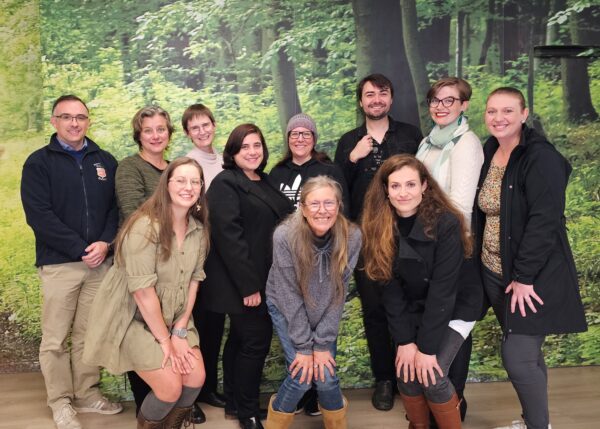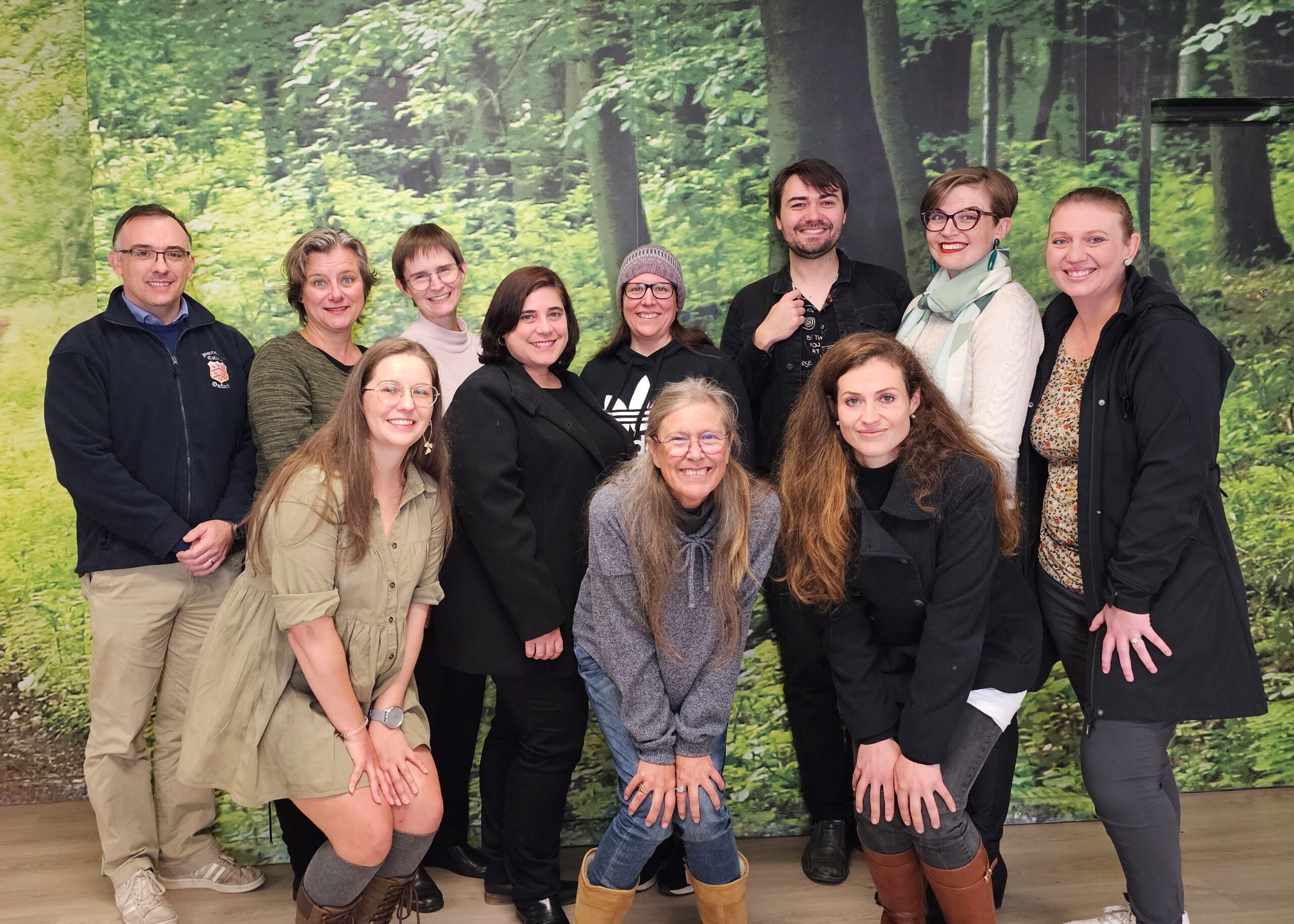
Some educational interpreters and lecturers they collaborate with
Success should be celebrated! Recently the Language Centre’s Interpreting Service hosted a collaboration celebration with some of the lecturers who use interpreting during their lectures.
Together we reflected on a semester of working together to create a high-quality multilingual classroom experience for students. It was the first opportunity for some lecturers to meet the interpreters with whom they’ve been working face to face – both an exciting and a strange experience!
Educational interpreting is a free service provided by the SU Language Centre’s Interpreting Service. It is available for modules that qualify according to faculties’ language implementation plans, or where there is a pedagogical need.
Students can benefit immensely from a multilingual teaching and learning space. By bringing different languages into the teaching and learning space, students are given the opportunity to approach learning material from different perspectives and to find the way that resonates best with their learning style. It also allows for more voices to be heard in an authentic way. Therefore, it is critically important for lecturers to understand how educational interpreting on our campus works and how to use it, and to encourage students to make use of it.
Accordingly, interpreting on our campus can be useful and meaningful in many more situations than only where students do not understand the language in which a lecturer presents a lecture. Students sometimes prefer listening to the lectures in Afrikaans for the first few weeks after the commencement of lectures because they may be unsure about the English and the subject terminology.
When they listen to the whole lecture in Afrikaans in real time, it helps them with the transition from school to university. As Dr Christine Steenkamp (Physics) puts it:
In cases where students stop making use of interpreting after a month or two, we don’t see it as meaning that the interpreting was unsuccessful. It might actually mean that it worked, because the transition has taken place and the student can move on confidently.”
Some of the benefits of interpreting for lecturers were also highlighted during the event. Prof Hermann Swart (Psychology) explained that it was invaluable to him to know that he has an online partner who can deal with the Afrikaans so that he can be at his best when he lectures in English. It is a shared goal of lecturer, interpreter and student to include the preferred language of more students in the class, and the fact that he can depend on interpreters to convey the content in Afrikaans to students who understand it better in Afrikaans or simply prefer it in Afrikaans, contributes to his being able to relax more.
Remerta Basson (Financial Accounting) mentioned how impressed she was with the interpreters’ knowledge of subject terminology, and the authentic and natural manner in which they conveyed the content in the interpreted lectures.
Thanks to the innovativeness of the technological team at the Interpreting Service, real-time online interpreting was integrated in the classrooms almost seamlessly. For the students it is as simple as putting on earphones in the classroom there and then!
You are welcome to find out more about educational interpreting by sending an email to juanli@sun.ac.za at the Interpreting Service or visiting our web page.



